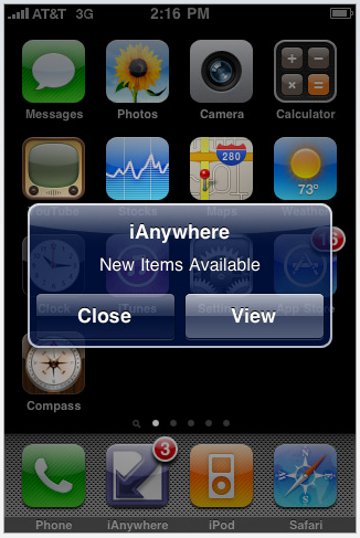Why iPhone-maker Apple won't flinch over mobile apps consortium

Minority Report: Steve Jobs secure in iPhone and Apps Store success
Mobile operators are challenging Apple's dominance in the mobile apps space with an 'open' consortium. But, says Seb Janacek, Jobs and Co are unlikely to lose any sleep over it.
As satirist Oscar Wilde once penned: "The only thing worse than being talked about is not being talked about."
Fortunately for Apple there has been no risk of that at this week's Mobile World Congress in Barcelona - despite the fact the iPhone maker does not have an official presence at the event.
In previous years, just as the talk at the Consumer Electronics Show in Las Vegas centred on what Apple would announce at Macworld a few days later in San Francisco, so the Mobile World Congress is a-twitter with talk of the iPhone and the success of the App Store.
This week a new challenge has been laid at Apple's door with the launch of the Wholesale Applications Community, or WAC.
In short: some of the biggest operators from around the world (including many iPhone carriers) have formed a consortium which will develop mobile apps that work on any phone platform - a clear hit at Apple's dominance in the mobile apps world.
The verdict? Fat chance.

Apple's iPhone and App Store are a tough format to beat
(Image credit: Apple)
The seeds of defeat for the consortium are present in the WAC's statement that it plans to "create an ecosystem for the development and distribution of mobile and internet applications irrespective of device or technology".
Google tried this before with its championing of the Android platform, before deciding it had a better chance of defeating Apple in the battle for online ad revenues with its own handset.
The search giant recognised that the much vaunted (and criticised) Apple model of tightly controlled and integrated hardware, software and app ecosystem is what gives the Cupertino firm its competitive advantage.
While many techies care about things like open software platforms, multitasking, choice and all the other things that Apple allegedly fails to offer, most consumers don't. They care that software is fun and easy and doesn't involve thinking too much about the stuff that geeks spend a lot of time discussing on blogs.
The new consortium faces a challenge of gargantuan proportions...
How do you define workable standards for the distribution of apps for devices that are radically different?
Developers will face the prospect of developing apps that cater to different screen sizes and resolutions, phones with keyboards, phones without, phones with no cameras, one camera or two cameras and so on. Imagine the user testing process for apps. On second thoughts, don't. It will give you a terrible headache.
Much of the iPhone's success hinges on the App Store. Mobile phone applications are synonymous with the iPhone in the consumer imagination, thanks in no small part to the 'there's an app for that' advertising campaign.
Rivals, including Microsoft, Nokia, Palm and RIM, have built their own app marketplaces. The development of yet another initiative is unlikely to cause Jobs and Co any sleepless nights.
Even Google, with its own Nexus One phone and apps, may struggle to challenge the iPhone. Nexus One is a geek brand and will struggle to make inroads into the mainstream consumer imagination.
I suspect Apple will not be hugely concerned about competition from the WAC. It doesn't appear to care about being open or about sharing its successful platform and toys (just ask Real or Adobe). Nor does it seem to focus solely on whether its technology is the fastest, most powerful or even original in its conception. It cares that users like it. It has found a phenomenal winning formula with the iPhone and the App Store - and nobody is getting into its fearsomely walled garden to get a whiff of the roses.
The crowning irony of MWC so far is that Steve Jobs has been named the Mobile Personality of the Year at the event's Global Mobile Awards.
Jobs was not there to collect his gong. Neither was anyone else from Apple. Instead the award was collected by Global Mobile Awards host and Apple evangelist Stephen Fry, who also once portrayed Oscar Wilde on screen.
You have to imagine Steve Jobs will accept the praise of his would-be competitors gracefully and not begrudge them their chance at competing with the iPhone.
As Wilde also wrote: "Always forgive your enemies; nothing annoys them so much."